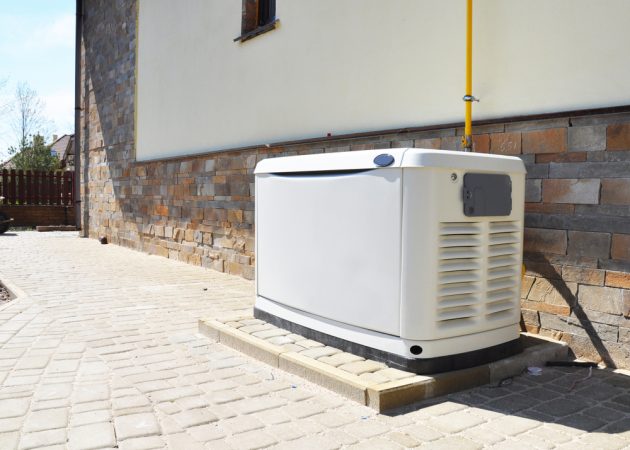If you choose a third-party service, ensure that the technician is certified to perform proper generator maintenance.

Image Link: https://imgur.com/pEuQrFW
It’s tempting to sit and relax after installing your new generator. You’ve done your research and found the most significant power generator for your house, had it put in the optimal location, and tested, oiled, and listened to it humming. Sooner or later, though, you’ll need to implement a preemptive generator maintenance schedule to ensure that the engine is ready to operate normally during a power loss.
A generator maintenance schedule includes:
- Doing a weekly set of minor, simple activities,
- Monitoring the engine oil or coolant levels monthly, and
- Contacting a professional to complete a complete checkup every six to twelve months.
Maintaining the generator is as vital as installing it. However, if done correctly, maintenance does not have to cost you a lot of money or time.
The following is a guide on adequately maintaining a new generator. While your dealer in Chicago, Illinois, may be able to offer you additional information particular to the generator you install, we hope this overview is helpful.
Why do you Need Generator Maintenance?
Many people anticipate installing a generator and then abandoning it till the next power outage occurs. In actuality, a standby generator, like every other internal combustion engine, needs some maintenance to operate appropriately. Not only does routine generator maintenance improve the engine’s performance, but it also enables you to recognize any possible problems as they arise.
The last thing you want is to invest in a backup generator just to have it fail at a time of crisis. That is why it is critical to maintain your generator. Regardless of how insignificant you believe maintenance is, a poorly maintained machine will not work correctly and will not last very long. However, if properly maintained, a generator may last between 20 and 30 years, keeping your house secure and comfortable during extreme weather and power failures.
Create a Strategy
The most effective approach to ensure that your generator receives the attention it needs is to develop a preventive generator maintenance plan. Manufacturers and dealers of generators often publish a maintenance plan for each model they sell. Your best bet would be to follow that maintenance plan.
Begin by organizing a weekly checkup session for the generator. Make it a part of your habit. Each week, inspect the airflow and exhaust systems, as well as the starting system, for weak connection or frayed wires on the battery and charger. Along with a visual examination, operate your generator at full load to ensure everything is operating correctly. If anything seems incorrect, contact your dealer or a professional electrician to resolve if the problem is severe.
Run your Generator Every Week
It just takes a few minutes each week to maintain your backup generator in good condition and ready to use. We suggest operating your generator at full load once a week for around 15 to 20 minutes. This enables the engine’s lubricating oil to reach operating temperature and circulate throughout the engine. Both of these factors contribute significantly to the generator’s sustained strength.
After starting the standby generator, check to ensure the machine is working as intended and is not emitting any warnings or alarms. Verify that the generator has sufficient fuel and that no fuel leaks exist. Additionally, ensure that your generator is set to “auto” to enable automatic restart in the event of a power outage. Then, verify that the circuit breaker has been turned off. If everything is in order, you can rest assured that your generator is in good working condition and ready to activate at the first sign of an outage.
Perform a Visual Inspection (Oil and Coolant)
Once a month, take a moment to inspect the engine oil and coolant levels. Each of these elements is required for the proper operation of a power generator. Indeed, among the most frequent causes for a generator to fail to start is a lack of oil or coolant. Numerous generators include a low-oil shutdown option to protect the engine. Low coolant levels will cause the engine to malfunction and overheat. Check the coolant and oil levels first if the generator appears to be malfunctioning.
It’s simple to check the oil and coolant levels. Simply inspect the coolant level in the collection tank located inside the engine. If it is getting low on coolant, add a little more. Identify the dipstick, which often has a yellow circle or handle at the top, to monitor the engine oil level. Remove the dipstick, clean it with a cloth, then replace it. When you reinsert it, you’ll be able to determine the amount of oil in the generator by the height of the oil on the dipstick. Do not inspect the oil soon after starting the engine; give it at least ten minutes after shutting it off.
Other Responsibilities
Depending on your location, you may need to do a few more generator maintenance activities to ensure that your generator is in good working order and ready to use. Any generator must have enough supply of air to operate properly. If your generator is located in a densely forested region, spend some time cleaning away branches, leaves, and other debris. In the winter, after a storm, you should brush the snow from the generator. Additionally, you should check to ensure that no rats have taken up home in an enclosed system. As with leaves and snow, tiny creatures will obstruct the engine’s operation.
Regardless of your environment, you should always examine your backup generator visually during a power loss. Replace the oil and coolant if required. Additionally, you should inspect the airflow and exhaust pipes, as well as the battery and charger, for proper operation and the absence of weak connectors or damaged cables. Finally, ensure that the starting batteries are corrosion-free and ready to start in the event of the following power loss.
Conclusion
If you often encounter power outages, the benefits of having a reliable backup generator far outweigh the drawbacks. Though the maintenance list may seem daunting at first glance, don’t let anything discourage you from buying a generator. The assurance that your residence in Chicago, Illinois will always have electricity is well worth the effort. Running through the shortlist of actions will become part of the routine soon. The critical aspect is to ensure that the generator runs at least once a week. And don’t forget to check the generator once a week!














